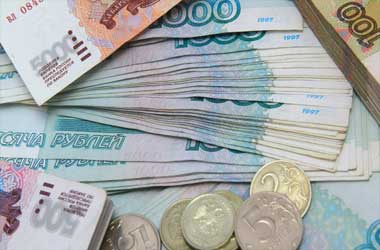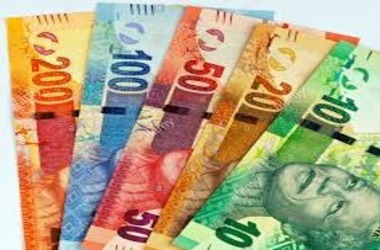 The Russian ruble faced heavy sell off last week, with the currency breach $77 mark for the foremost time since November 2020 on increasing geopolitical problems. Specifically, NATO has warned about Russian military build-up along eastern Ukraine.
The Russian ruble faced heavy sell off last week, with the currency breach $77 mark for the foremost time since November 2020 on increasing geopolitical problems. Specifically, NATO has warned about Russian military build-up along eastern Ukraine.
In the meantime, Russia has clarified that the troop movements along the Ukranian border is not intended to threaten the country and further intensification of the conflict in Ukraine’s Donbass zone could cause huge destruction to the country.
The USD/RUB pair is already facing selling pressure since mid-march against the backdrop of fresh US sanctions against Russia after the US President Joe Biden vouched that Vladimir Putin will pay heavily for supposedly playing around in the US election and involving in cyber hacking.
With respect to monetary policy, the Central Bank of Russia stunned markets by announcing a 25bps increase in interest rates and keeping the door open for additional rate hikes in the months ahead to restrict inflation.
The IHS Markit stated that manufacturing PMI (purchasing managers’ index) fell to 51.1 in March, from 51.50 in the earlier month, reflecting the third consecutive month of growth, as both output and fresh orders continued to rise. In the meantime, fresh export orders continued to decline with the pace of shrinking eased from February’s robust decrease.
During the same period, employment remained unaltered, drawing to a close a two successive month of expansion. With respect to prices, input cost inflation slowed down to a five-month low, but remained above the series trend. As an outcome, output price inflation slowed a bit, but still remained the second largest figure in more than six years. Overall, business sentiment was the second highest since January 2020, against the backdrop of trust for a rise in customer demand and scheduled investment.
The country’s GDP contracted 1.8% y-o-y in 4Q20, improving from an amended 3.5% contraction in the earlier three-month period and a 7.8% decline in June quarter. The country’s economy fell into recession in 2020 as the Covid-19 crisis affected economic activity and demand. The hotels & restaurants industry remained the largest driver of contraction, declining 20.7% y-o-y.
Furthermore, output declined for wholesale and retail trade, recreation and cultural activities, transportation and storage, education, administrative activities and associated additional services. Mining & quarrying decreased 10.4%, while utilities output declined 3%. On the contrary, manufacturing production increased 2%. Overall in 2020, the economy contracted 3%, compared with a 2% growth in 2019.
Russia’s annual inflation increased to 5.8% in March, from 5.7% in the earlier month, meeting market anticipations and higher than the 4% target of the central bank. The reported figure reflects the highest inflation since November 2016, with key upward pressure arising from 7.6% increase in food and 5.9% rise in non-food products and 3.2% growth in services. On m-o-m basis, consumer prices grew 0.7%, following a 0.8% increase in February and compared to expectations for a 0.6% increase.
Notably, the country posted a current account surplus of $16.8 billion in 1Q21, down from $23 billion in the similar period last year. The goods surplus narrowed to $24.40 billion, from $33.10 billion. Also, the investment gap widened to $3.70 billion, from $1.70 billion. Even the secondary income shortfall increased to $1.50 billion, from $1.20 billion. In the meantime, the services gap narrowed to $2.60 billion, from $6.60 billion.




